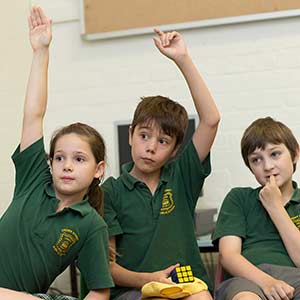Ethical questions ask what we ought to do and how we ought to live.
In New South Wales public schools, a timeslot is set aside each week for teaching ethics at the same time as scripture. Ethics classes are impartially facilitated by our trained volunteers, using lesson materials approved by the Department of Education.
In the lessons, children listen to a range of stories and scenarios pitched at their age level and then share ideas on what they think they ought to do in these situations. The focus is on students developing the skill to identify ethical issues and to think critically in developing their own reasoned opinions, as they engage in respectful discussion with the other children.
What teaching methods are used?
Our approach combines two key evidence-based teaching elements:
- The teaching of critical thinking (or logical reasoning) skills, together with the opportunity to apply those skills to everyday topics.
- A community of inquiry approach amongst the children, supported by questions from the teacher, which underlies our curriculum and our teacher training.
A significant body of research shows that such an approach leads to improvement in general reasoning skills as well as in ethical reasoning capabilities. Research also demonstrates that there are positive flow-on effects from the style of education employed in ethics classes. These include significant improvements in student performance in mathematics, reading comprehension and writing tests.
